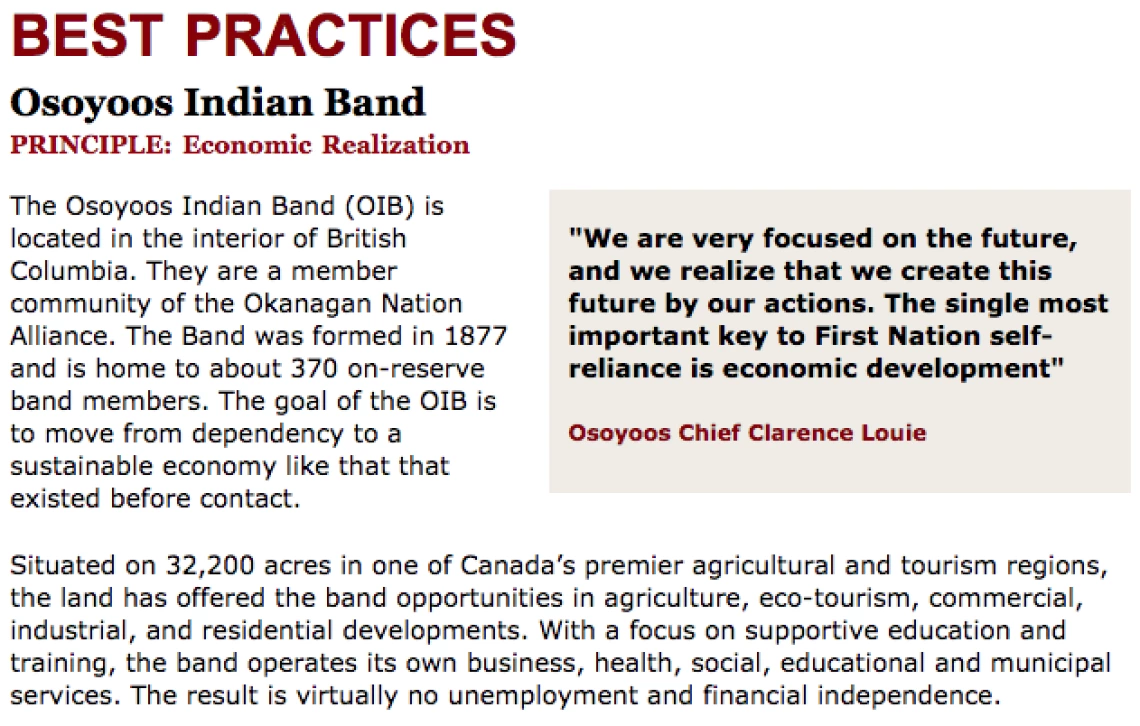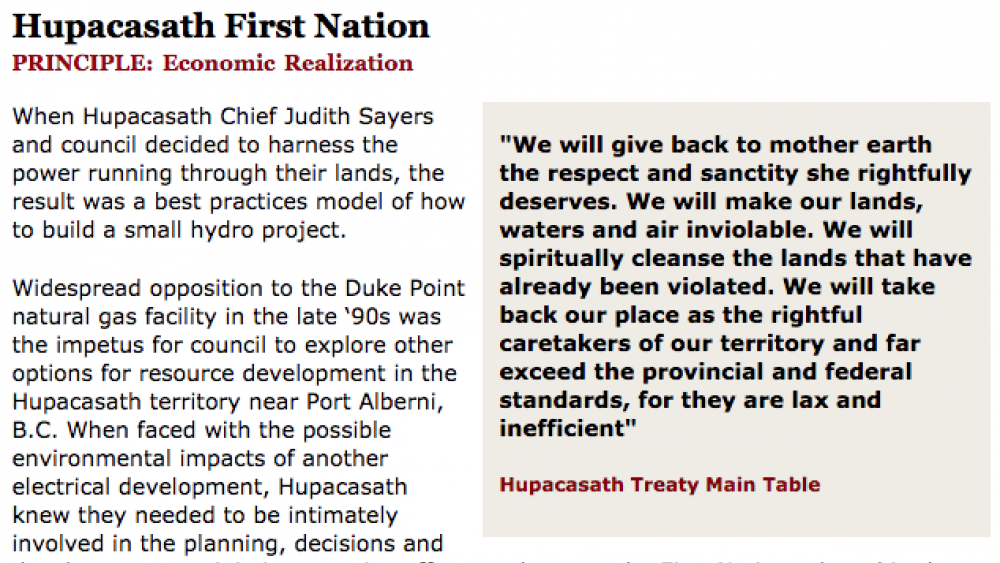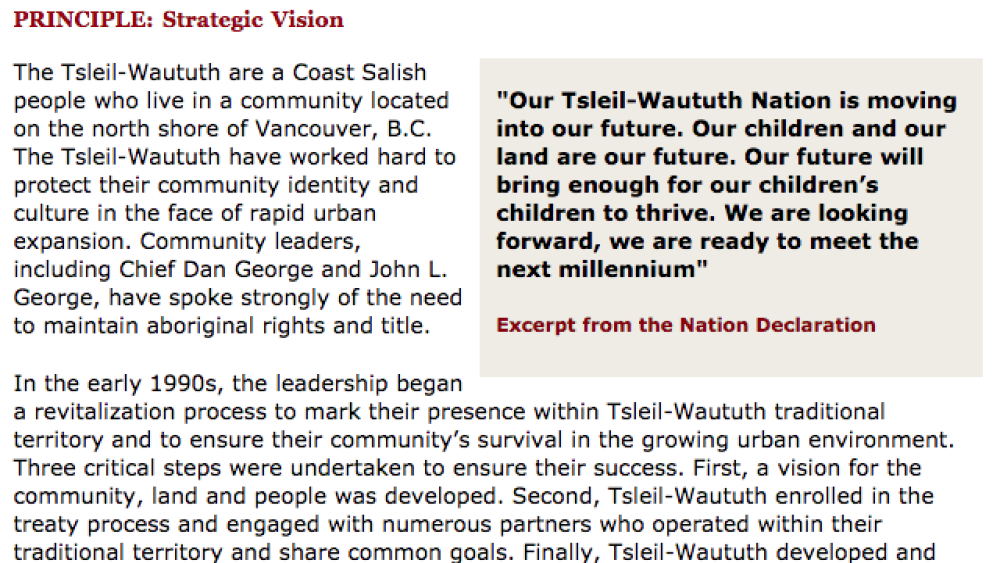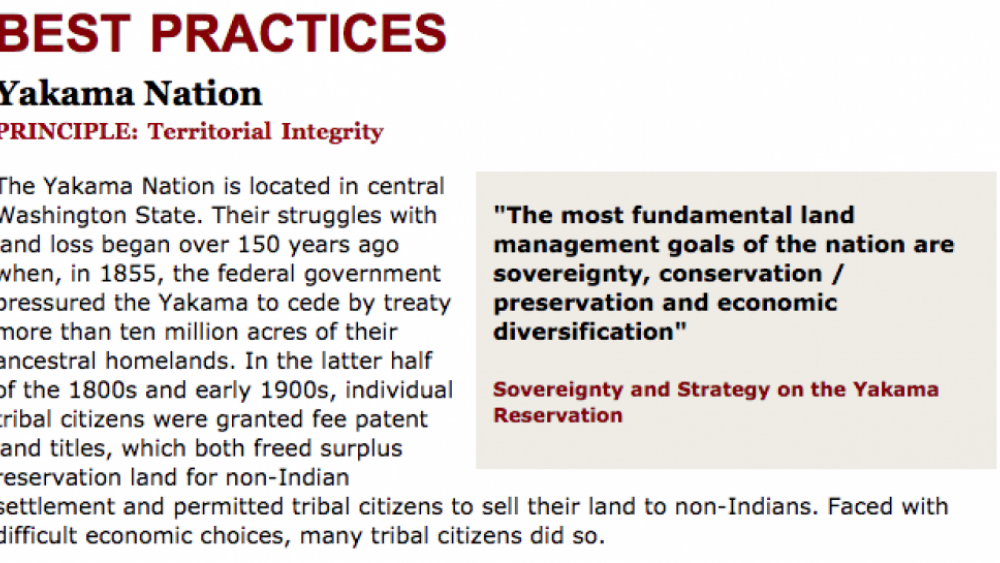The Osoyoos Indian Band (OIB) is located in the interior of British Columbia. They are a member community of the Okanagan Nation Alliance. The Band was formed in 1877 and is home to about 370 on-reserve band members. The goal of the OIB is to move from dependency to a sustainable economy like that that existed before contact.
Situated on 32,200 acres in one of Canada's premier agricultural and tourism regions, the land has offered the band opportunities in agriculture, eco-tourism, commercial, industrial, and residential developments. With a focus on supportive education and training, the band operates its own business, health, social, educational and municipal services. The result is virtually no unemployment and financial independence...
Additional Information
National Centre for First Nations Governance. "Best Practices Case Study (Economic Realization): Osoyoos Indian Band." A Report for the National Centre for First Nations Governance. The National Centre for First Nations Governance. Canada. June 2009. Case study. (https://fngovernance.org/wp-content/uploads/2020/06/ER_Osoyoos.pdf, accessed March 7, 2023)




